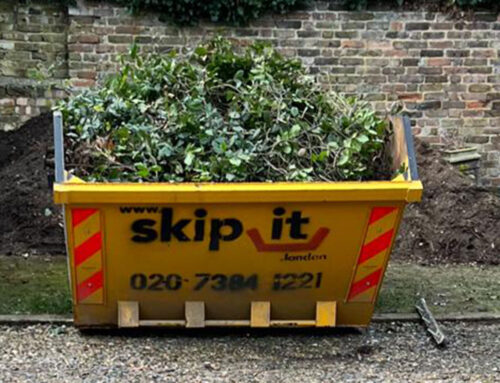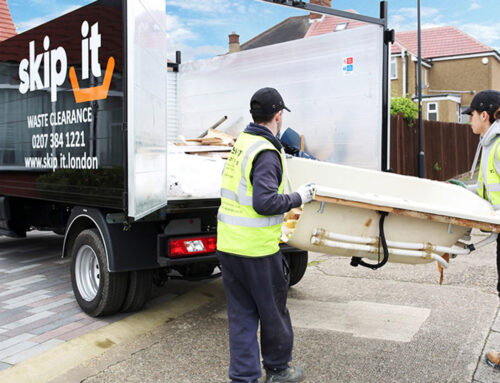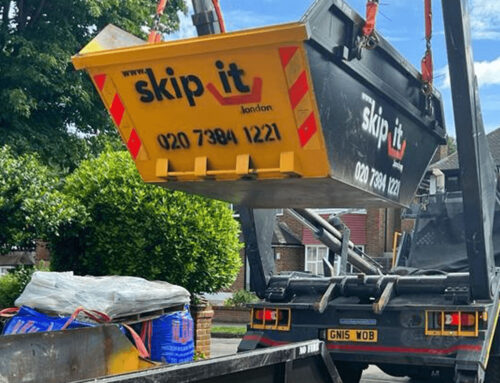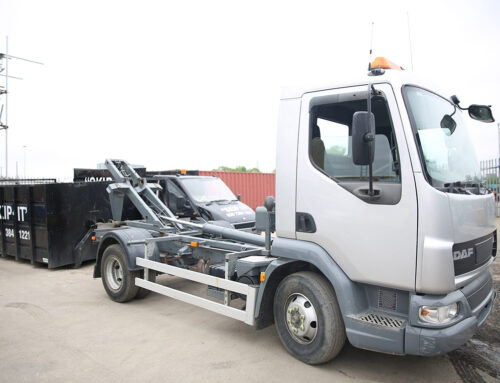Reduce, Reuse and Recycle: Step by Step guide
Embracing eco-friendly practices in gardening is not just a trend but a necessity in our modern world. As gardeners, we have a unique opportunity to contribute positively to the environment, and one of the most effective ways to do this is through recycling garden waste. This guide aims to provide comprehensive insights into recycling garden waste efficiently, supported by Surbiton Skip, a brand committed to sustainable waste management.
1 – Understanding Garden Waste
Garden waste encompasses various materials found in your garden. The organic waste category includes leaves, grass clippings, and branches, all biodegradable and can be recycled into valuable compost. On the other hand, non-organic waste, such as plastics and metals, often found as part of garden tools or decorations, requires different handling due to their non-biodegradable nature.
1.1 – Benefits of Recycling Garden Waste
Recycling garden waste is pivotal in enhancing soil health. Turning organic waste into compost enriches the soil with nutrients, fostering healthier plant growth. Moreover, this practice significantly reduces your environmental footprint by minimizing landfill waste and lowering greenhouse gas emissions associated with waste decomposition.
2 – Preparing for Garden Waste Recycling
To manage garden waste effectively, setting up your garden accordingly is essential. Designate specific areas for waste collection, separating organic from non-organic materials. The right tools, such as compost bins, shredders, and skip hire services like Skip Hire Surbiton, are crucial for efficient recycling.
2.1 – Identifying Recyclable Garden Waste
Understanding what can be recycled is critical. Most organic matter is recyclable, whereas plastic plants and synthetic garden decorations aren’t typically compostable. Always check for local recycling guidelines to ensure proper waste sorting.
3 – Step-by-Step Guide to Recycling Garden Waste
Composting is a cornerstone of garden waste recycling. Start by building a compost bin or heap in your garden. The right mix of greens (nitrogen-rich materials like grass clippings) and browns (carbon-rich materials like dry leaves) is vital for successful composting.
3.3 – Creating Mulch from Garden Waste
Mulch, made from decomposed organic matter, is excellent for soil health. Process your garden waste, mainly leaves and small branches, into mulch using a shredder or by natural decomposition, and use it to enrich your garden soil.
3.4 – Reusing Garden Waste for Creative Projects
Garden waste offers numerous opportunities for creative upcycling. The possibilities are endless, from crafting natural garden borders with branches to using dried leaves for artistic projects.
4 – Managing Larger Garden Waste
Dealing with giant garden waste, like tree branches, requires safe cutting and disposal techniques. If the waste is too bulky for home recycling, consider hiring professional services like Skip Hire Surbiton for efficient and eco-friendly disposal.
4.4 – Options for Disposing of Excess Garden Waste
Community composting programs offer a viable alternative when home composting isn’t feasible. They accept more significant quantities of garden waste and recycle them responsibly. Alternatively, hiring waste removal services ensures your excess garden waste is handled sustainably.
5 – Troubleshooting Common Recycling Challenges
Gardening often comes with challenges like dealing with diseased plants and pests. Disposing of infected material safely is crucial to prevent the spread of disease. Always follow local guidelines for disposing of such waste.
5.5 – Overcoming Space Limitations
For those with limited space, compact composting and recycling solutions are available. These include smaller compost bins and community composting programs, allowing you to participate in garden waste recycling despite space constraints.
Summary
Recycling garden waste is a crucial step in sustainable living. By following the steps outlined in this guide, home gardeners can contribute significantly to environmental conservation. Remember, every small effort counts, and with the support of services like Surbiton Skip, we can substantially impact our planet’s health.





Leave A Comment